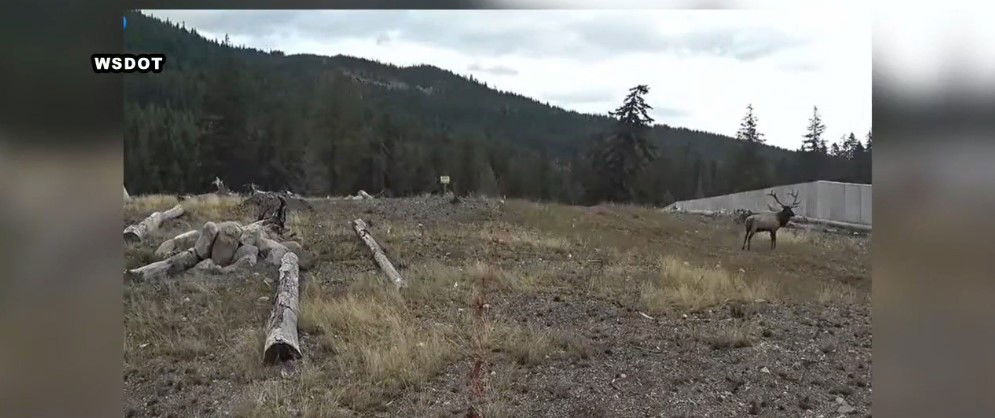Washington implements new hunting rules to combat chronic wasting disease spread

By William Albert, KAPP
Click here for updates on this story
OLYMPIA, Washington (KAPP) — Washington state hunters face new regulations this season as wildlife officials work to prevent the spread of chronic wasting disease, a fatal neurological condition that affects deer, elk, and moose.
The Washington Department of Fish and Wildlife rolled out the new regulations this spring in response to growing concerns about chronic wasting disease, commonly known as CWD. The disease attacks an animal’s nervous system and is always fatal, spreading through contact with infected animals or even their carcasses.
The comprehensive new rules include three major changes to hunting practices in Washington. The regulations now ban baiting and feeding of deer or elk, require hunters to report their hunting activity to state officials, and establish strict limits on how hunters can transport dead game.
These measures represent a proactive approach to wildlife management as officials work to contain the disease before it becomes a more widespread problem in the state.
“People pick it up unknowingly and move it to where they live—and they can spread it that way,” said Hunter Westacott, a chronic wasting disease expert. “So there’s always that concern. That’s really our biggest concern: it spreading to areas we don’t know about.”
As of this year, Washington has documented five confirmed cases of chronic wasting disease within state boundaries. While the number remains relatively low compared to other states, wildlife officials emphasize the importance of taking preventive action now rather than waiting for the disease to establish a stronger foothold.
Chronic wasting disease poses significant challenges for wildlife management because it can persist in the environment for extended periods. The disease spreads through prions, which are misfolded proteins that can contaminate soil, vegetation, and water sources where infected animals have been present.
The ban on baiting and feeding deer or elk addresses one of the primary ways the disease can spread rapidly through wildlife populations. When animals congregate around artificial food sources, infected individuals can more easily transmit the disease to healthy animals through saliva, urine, and feces.
The new reporting requirements for hunters will help wildlife officials track hunting activity and monitor potential disease spread patterns. This data collection will enable the Department of Fish and Wildlife to identify emerging hotspots and adjust management strategies accordingly.
Transportation restrictions on dead game aim to prevent hunters from inadvertently carrying infected carcasses to new areas. These rules typically prohibit moving certain parts of harvested animals, particularly brain and spinal cord tissue where prions concentrate most heavily.
The disease has already established itself in several neighboring states and provinces, making Washington’s preventive approach particularly important. States like Montana, Idaho, and Wyoming have documented numerous CWD cases, and the disease continues to expand its geographic range across North America.
Wildlife biologists consider chronic wasting disease one of the most serious threats facing deer, elk, and moose populations. Unlike other wildlife diseases, CWD has no known cure or treatment, making prevention the only effective management strategy.
The economic implications of widespread CWD infection could be substantial for Washington’s hunting industry. States with established CWD populations often face reduced hunting participation, decreased wildlife populations, and increased management costs for monitoring and containment efforts.
Washington’s deer and elk populations support significant recreational hunting activity that contributes millions of dollars annually to the state’s economy. Protecting these populations from disease represents both a conservation priority and an economic necessity for rural communities that depend on hunting tourism.
The new regulations apply statewide and will remain in effect as wildlife officials continue monitoring for additional CWD cases. Hunters who violate the new rules may face fines and potential loss of hunting privileges.
Wildlife officials encourage hunters to familiarize themselves with the new regulations before heading into the field this season. The Department of Fish and Wildlife has published detailed information about the rules on its website and through hunter education programs.
The state’s approach reflects lessons learned from other regions where chronic wasting disease has become established. Early intervention and strict prevention measures have proven more effective than attempting to control the disease after it spreads widely through wildlife populations.
Washington’s proactive stance on chronic wasting disease prevention demonstrates the state’s commitment to maintaining healthy wildlife populations for future generations of hunters and wildlife enthusiasts.
Please note: This content carries a strict local market embargo. If you share the same market as the contributor of this article, you may not use it on any platform.


